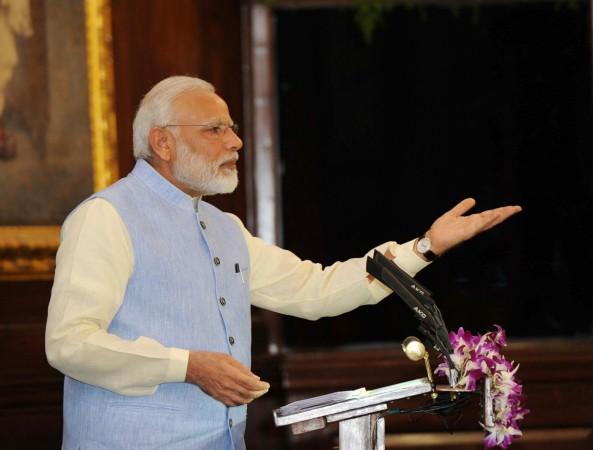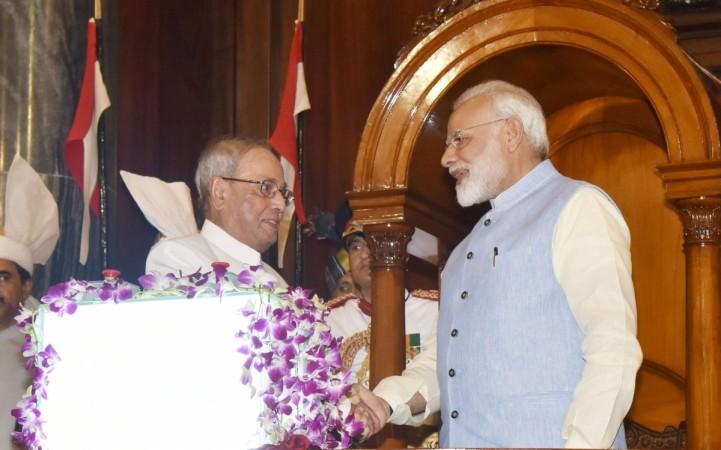
In Indian politics, ideologies change with positions. The Goods and Services Tax (GST) regime which was inaugurated at midnight of June 30 had its groundwork laid by the NDA government of Atal Behari Vajpayee in 2000. The UPA government led by the Congress had taken an initiative on the GST structure a year later but it was vehemently opposed by the BJP, including current Prime Minister Narendra Modi, who was the chief minister of Gujarat then.
When the Opposition hit out at Modi last year reminding him the same, the latter faced it boldly saying he could address the issues of the GST as the prime minister after having doubts about it as the chief minister. No other argument would have been as strong as this in a federal functioning.
But for the aam aadmi, Modi's changing stances are being seen as more opportunistic than for technical reasons. And one can see that in Gujarat, Modi's own state where dissatisfaction over the GST is gradually on the rise. In 2013, Modi had said that the GST would make his state incur an annual loss of Rs 14,000 crore. In 2017, he is speaking in its favour from New Delhi. While the prime minister's perception about GST has changed, there is a high risk that the common man's perception about him could also change for the worse.
In Gujarat, cloth merchants of Ahmedabad and Surat have been demanding a complete rollback of the GST on fabric and supported the ongoing indefinite strike called by the GST Sangharsh Samiti. In Surat, they had a clash with the police with the latter resorting to lathicharge.

According to a report in Mint, the cloth merchants have said that they have never been taxed and should be exempted from GST as well.
They have also argued that there was not enough time to get adjusted to the new system. It was also reported that kite manufacturers in Ahmedabad were also against the GST for they felt it would adversely impact the small manufacturers.
Union Finance Minister Arun Jaitley, however, made it evident that the Centre is in no mood to relent. He said the real issue with the protest is that a section of the merchants will be forced to pay taxes because of GST.
Debate both political and economical
This debate has both a political and economic angle. But given the fact that Modi's BJP has a major stake in the Assembly elections in Gujarat, the political would matter more than the economical in the state at the moment. And given the fact that the baniya class is a major pillar of the saffron party, its disappointment would not leave the party assured enough ahead of the elections due in some months.
The western state's textile traders also decided to boycott the NDA government's mega 'Textile India 2017' which took place between June 30 and July 2. The Modi government had thought of using the textile industry for creating more jobs, something it has been accused of not doing. But more than creation of jobs, the Modi government now finds the disappointment over the GST as a bigger concern to address in Gujarat.
The interests and visions of Modi as the PM are vastly different from those as the CM of Gujarat but it is unlikely that those who are finding the GST a threat to their livelihood will wisely judge the difference in Modi's stands in 2013 and 2017.
On the contrary, Modi's party needs to find some way to assuage the feelings of the agitated ahead of the key election. For if the business class of Gujarat decides to teach Modi a lesson and the BJP eventually loses its throne in the prime minister's home state, then the entire GST episode could see an entirely new political story unfolding.














